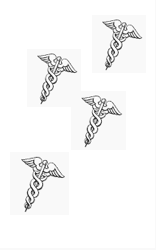By JESSICA DaMASSA, WTF HEALTH
Headspace Health CEO Russell Glass says the merger-of-equals between on-demand mental health care provider, Ginger, and consumer meditation app, Headspace, is starting its upward trajectory on the “merger J-curve” and this monster 30-minute chat gets into the how-and-why.
We start out talking about the company’s recent acquisition of chatbot-based self-care app Sayana, but quickly turn to the integration of Headspace and Ginger and where things stand in terms of bringing those offerings together after three months of operationalizing. A combined vision and set of values have been launched with all 900 employees, and Russ says its enterprise clients (there are now 3,500 of those) are just weeks away from getting a fully-integrated platform that proves reporting for both Headspace and Ginger, allows launch from a single eligibility file, and offers communication that spans both service lines.
What’s “extra” in all this – and gives us a real glimpse of where Headspace Health is headed in terms of positioning itself to health plans and employers as standout from the Lyra Health / Quartet Health / Modern Health pack – comes out when Russ is describing the company’s partnership with Blue Shield of California at the 15:25-minute mark. The plan’s members can now access Headspace Health’s full-spectrum of services (meditation to therapy) via Blue Shield of California’s Wellvolution platform, which provides intelligent intake, smart patient routing, ongoing measurement and adjustment of services, and the ultimate ability to help prove-out mental health care’s connection to the reduction of downstream healthcare costs over time. As Russ says, “All of this is part of a long-term vision for what this could mean to a broader population, not just those who may need acute care, but to think about the entire population and how you pull the cost out of healthcare by managing behavioral health in a smart way.”
The big finish to this BIG conversation is Russ’s take on what’s ahead for both Headspace Health AND the digital mental health care market in 2022. Tune-in around the 20-minute mark to start this segment off with the IPO question that I never get answered, then lots of detail on where Headspace Health is looking to acquire and expand, what he thinks the headline story will be when it comes to the business of mental healthcare this year, and which patient population will rise to the top in terms of mental healthcare need.










